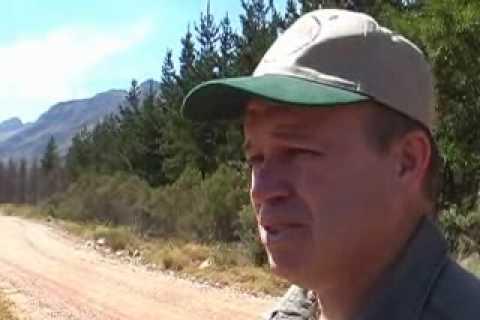Companies that promote large-scale monoculture tree plantations do not seek the FSC label solely to increase the value of their final products. There are also companies that use the FSC for a very specific and very different purpose: obtaining certification to sell carbon credits. This is the case of Plantar, a company based in the state of Minas Gerais, Brazil.
Bulletin articles
Since 1974, industrial monoculture tree plantations have spread throughout Chile, and are particularly concentrated in the regions of Bío-Bío and Araucanía, although they are also found in the regions of Maule, Los Ríos and Los Lagos.
GeaSphere is an environmental pressure group working towards a more sustainable model of living based on lower impact agriculture practices that are environmentally sustainable, socially just and which ensures food security and promotes locally based economies and poverty alleviation in the southern African region. A major threat to the local integrated environment is the large scale industrial timber plantation industry, responsible for the transformation of millions of hectares of bio diverse grasslands, the primary vegetation type in most of Southern Africa’s timber growing regions.
In our first bulletin of the year, in light of the fact that 2011 has been declared the International Year of Forests, we shared with you the idea of defining the forest by its true meaning, as a diverse ecosystem that sustains countless forms and ways of life, rich in colours, textures, aromas and sounds.
The United Nations General Assembly has declared 2011 the International Year of Forests, and WRM has decided to devote its first bulletin of the year to this significant event. According to the resolution adopted by the General Assembly, the UN is committed to promoting “the management, conservation and sustainable development of all types of forests.”
The origin of forests
Some 430 million years ago, plants and arthropods began to live on land and to evolve, adapting to their new habitat while adapting their habitat at the same time. Larger and more varied types of plants – giant versions of what are classified by science today as lycopods, equisetums and ferns, reaching heights of up to 12 metres – spread across the swamps and lakeshores until forming the first terrestrial forests, which were occupied by the primitive ancestors of millipedes, centipedes, insects, mites and spiders.
Many years have passed since I had the great honour of being elected as the WRM International Coordinator. There are no words that could express my gratitude to those who gave me this opportunity. It has opened up horizons that I was barely aware existed, and allowed me to be, more than a coordinator of anything, a learner of everything.
The United Nations has designated 10 December as Human Rights Day. The date was chosen to commemorate the 10 December 1948 adoption and proclamation of The Universal Declaration of Human Rights, which states that recognition of the inherent dignity and of the equal and inalienable rights of all human beings is “the foundation of freedom, justice and peace in the world.”
On the occasion of Human Rights Day, we think it would be opportune to share a report conducted this year in Brazil: a research study that analyses the impacts of commercial mega-projects on human rights, focusing in this case on large-scale monoculture tree plantations in the northern region of the state of Espirito Santo.
One of the promises made by plantation companies to gain support – from the government and from local communities – is that they will create employment. What they fail to specify beforehand is the type of employment they will create and under what kind of working conditions, in terms of both salaries and workers’ health and safety.
At a time when water resources are becoming scarce and ever more threatened by global warming and climate change, a research carried out in South Africa becomes quite timely. After 70 years of monitoring in the Jonkershoek reserve, in the Western Cape Province, the study reveals the impact of monoculture tree plantations on underground water and streamflow. This is very important, given that plantations use significant amounts of water and have expanded greately in South Africa, a country with scarse water resources.
The FSC (Forest Stewardship Council)website has announced that the company Chikweti Forests of Niassa, which operates in the province of Niassa in northern Mozambique, is seeking the FSC “green label” for a 33,916-hectare monoculture tree plantation. According to the website, the pre-evaluation was carried out in November 2010, and the main evaluation is anticipated for February/March 2011. The FSC certification body in this case is Soil Association Woodmark, based in the United Kingdom.

